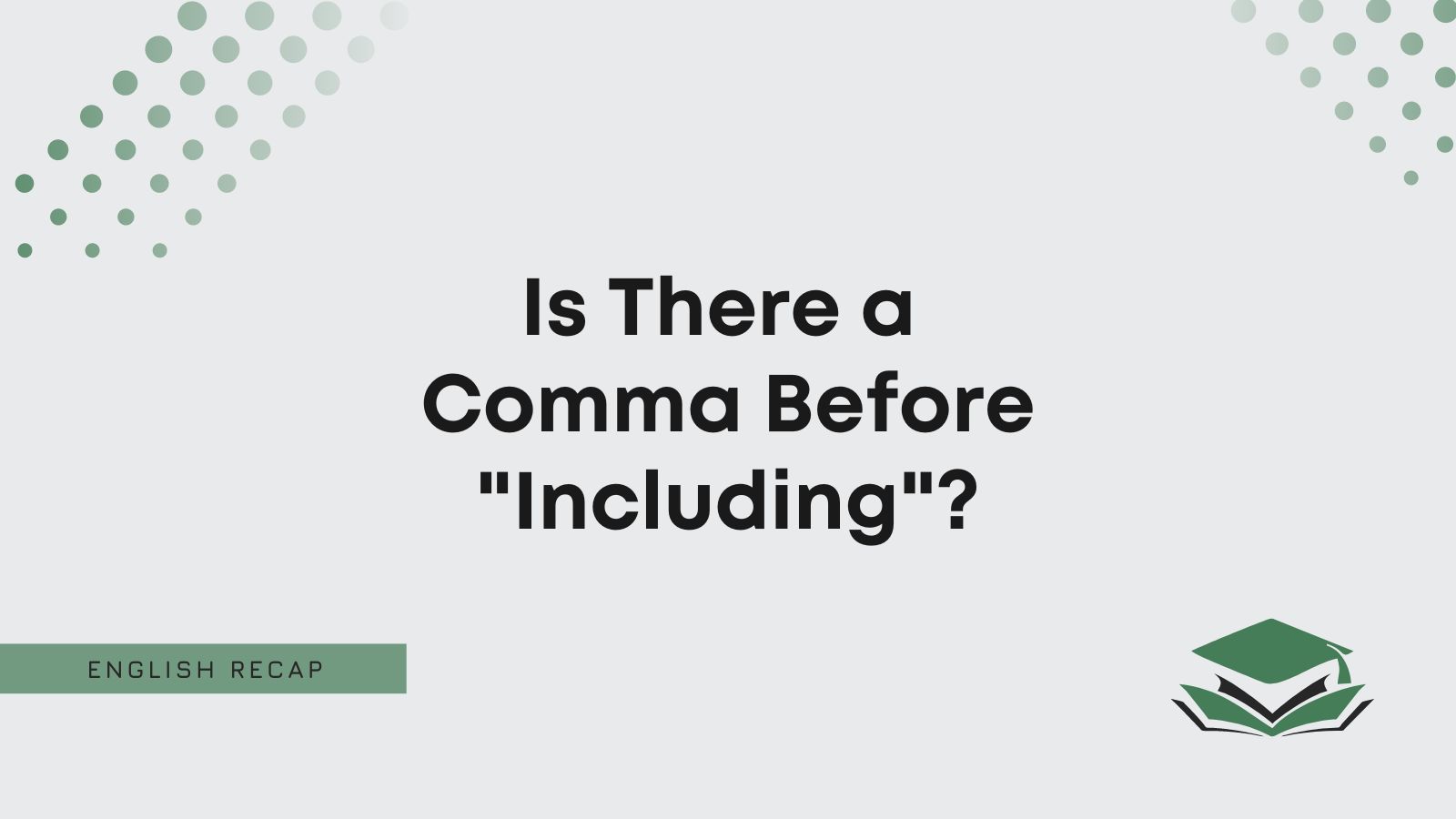Rule 1: You should always use a comma before “including” when it starts a non-essential clause or phrase.
- Correct: She knows many important people in the area, including the local senator.
- Incorrect: She knows many important people in the area including the local senator.
Rule 2: If the word” including” is essential for the sentence’s meaning, you should not use a comma.
- Correct: They are including the postage fee in the product’s price.
- Incorrect: They are, including the postage fee in the product’s price.
The remainder of the article describes in more detail when you should use a comma and when you shouldn’t use a comma with “including.”
When to Use a Comma Before “Including”
Rule 1 explains when to insert a comma before “including.”
Rule 1: Use a comma before “including” when it is the first word in a non-essential element.
A non-essential element means that if you remove it, the sentence expresses a complete idea and is correct.
In these examples, the name is extra information that we do not need:
- We are visiting lots of people this weekend, including John.
- Everyone is coming for dinner at Christmas, including your cousin Mary.
When following formal writing styles like the Chicago Manual of Style, you should always use a comma before “including” when introducing non-essential elements of a sentence.
In this example, the phrase “including but not limited to” means that there were other substances that we have not listed.
- Many substances were found in the residue, including but not limited to copper, magnesium, and phosphorus.
When to Avoid a Comma Before “Including”
Rule 2 states when you should avoid using a comma before “including.”
Rule 2: You shouldn’t use a comma before “including” when it is essential for the meaning of the sentence.
Therefore, if you cannot remove the word “including” and the words that follow it, you should not put a comma.
- My mother is including us all in the planning for their anniversary.
- I am including George on the guest list even though I don’t really like him.
- She will be including some cookies in the package she is sending us.
Conclusion
You should use a comma if the word “including” is at the start of a non-defining element. E.g., “I tried all your numbers, including your house phone.” However, if “including” is essential for the sentence, do not put a comma. E.g., “I am including a free gift with your purchase.”

